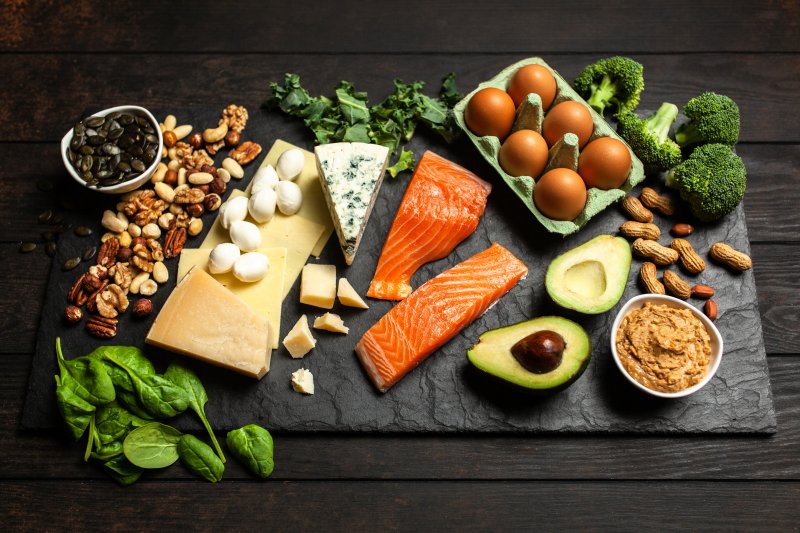
Named the most popular diet of 2018, the highly debated Keto diet has helped patients across the world achieve their weight loss goals. With its jaw-dropping results and relatively low-restriction approach to dieting, it’s not hard to see why it quickly spread throughout the U.S. However, as with any diet, it is important to consider the potential consequences before getting started. For example, how does it affect the condition of your teeth and gums? Read on for the relationship between the Keto diet and oral health in State College.
What Is The Keto Diet?
Professionally referred to as the Ketogenic diet, patients who are “going Keto” eat low-carb, high-fat foods that are designed to put your body into a metabolic state called ketosis. Once this is achieved, your body’s metabolism shifts away from carbs and begins burning fat for energy. By focusing on eating meats, nuts, dairy, fats, and vegetables, patients can effectively shed stubborn pounds without counting calories or eliminating all their favorite foods.
How Does It Affect Your Oral Health?
While the weight management benefits are obvious, it is important to consider your overall health when starting any diet. For example, how will the little sugar and low carb change to your food regimen affect your oral health? Fortunately, researchers from the University of Freiberg in Germany studied the relationship between the Keto diet and oral health extensively. According to their investigation, a low carb and low sugar diet can reduce tartar build-up, cavities, and gum disease by over 50%! So, switching to this popular diet can benefit your weight and your oral health.
Why You Should Talk to Your Dentist Before Starting Keto
In short, the food you eat is an important part of your oral hygiene regimen. So, if you are changing your diet, it is beneficial to talk to your dentist first. Not only can they give you insight into their professional opinion, but they can also talk to you about preventive measures you should implement. For example, many patients who transition to Keto experience halitosis, which is also known as bad breath. The metallic taste and unpleasant odor can be an unwanted side effect. However, brushing and flossing after every meal and increasing your water intake can effectively combat it.
Partaking in the Keto diet has been life-changing for patients worldwide. To ensure that your lifestyle alterations don’t negatively impact your oral health, make sure to talk to your dentist and primary care physician before starting a new regimen!
About the Author
After completing his undergraduate degree from the University of Pittsburgh, Dr. Donald Marks earned his doctorate at the same institution! Today, his extensive experience, dedication to clinical excellence, and genuine passion for his craft allow him to help his patients achieve beautiful smiles and pristine oral health. If you are looking for a dentist in State College, don’t hesitate to contact Dr. Marks via his website or by phone at 814-234-0329.




